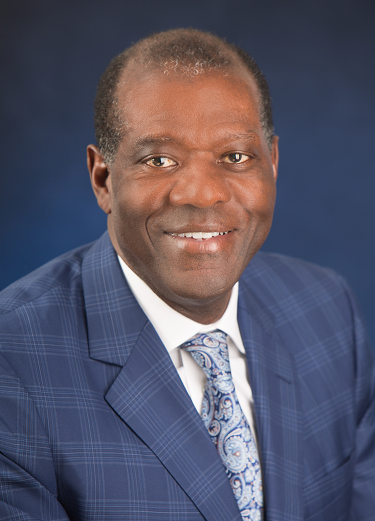Anthony Welters
Class of 1998
- Executive Chairman BlackIvy Group, LLC

You will never appreciate a win, unless you've suffered a loss.
Born in New York's Harlem in 1955 and raised in the tenements, Anthony Welters lived with his family in a cramped apartment. He slept with his three brothers in bunk beds behind a curtain in the living room.
Welters' father spent most of his life working as a shipping clerk in New York's garment district. His mother was a severe asthmatic. When Welters was eight, she died suddenly after an allergic reaction to a shot of penicillin. After her death, Welters' father began working two jobs, but still had trouble paying all the bills. When their electricity was turned off, they would bring out kerosene lamps until there was enough money to pay the bill. To help, Welters shined shoes under the elevated subway, sold newspapers, and earned tips by sweeping the floor of a barber shop.
An excellent student, Welters skipped the fourth grade and later won admission to Stuyvesant High School, one of the nation's most scholastically rigorous public schools. Later, he won a scholarship to Manhattanville College, where he double majored in political science and economics. He completed his degree in less than three years and then attended New York University Law School. He graduated with a law degree at the age of 22.
Upon completing his law degree in 1977, he became a staff attorney at the Securities and Exchange Commission. In 1981, he worked for Sen. Jacob Javits (R-NY). Next, he joined Amtrak as director of federal affairs, and he was later promoted to assistant vice president of corporate development.
In 1983, Welters was named senior adviser to Elizabeth Dole when she became U.S. Secretary of Transportation. By 1985, he felt that it was time he went into business for himself. He started and operated several companies ranging from manufacturing to restaurant franchises. Although those businesses failed, he was undaunted. He says, "You have to be prepared to accept failure to have success. You can't be afraid to fail."
His turning point came in 1988, when he learned that the national healthcare firm managing Philadelphia's Medicaid program was in financial trouble. Welters organized a private firm that won a competitive bid to replace the company, thereby winning the state's largest contract ever. Welters' AmeriChoice Corporation became profitable and a part of UnitedHealth Group. Welters has served as executive vice president of that company.
Welters and his wife, Bea, started a project called Camp Dogwood Summer Academy in Virginia's Blue Ridge Mountains. Funded by the family foundation they established, the camp seeks to help low-income children who need academic enrichment and educational motivation. Welters tells the children who attend his camp that it is okay to dream. "Dreaming raises your own expectations," he says. "The more you believe in what you are doing, the more successful you will be."
